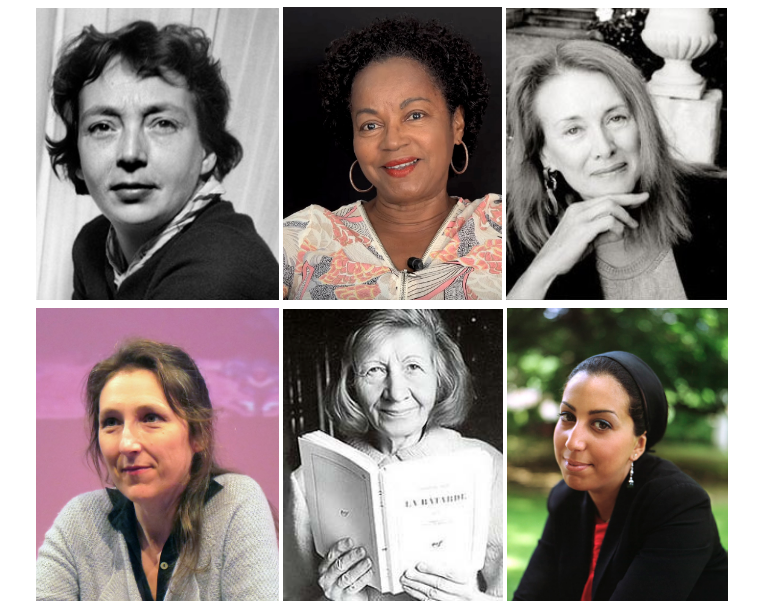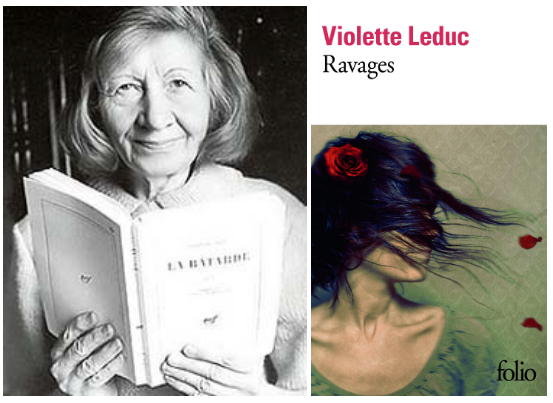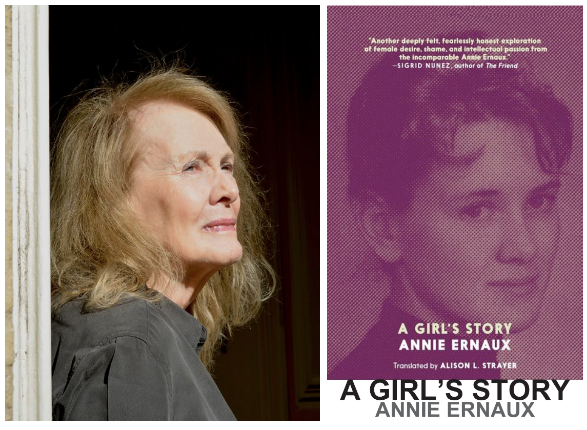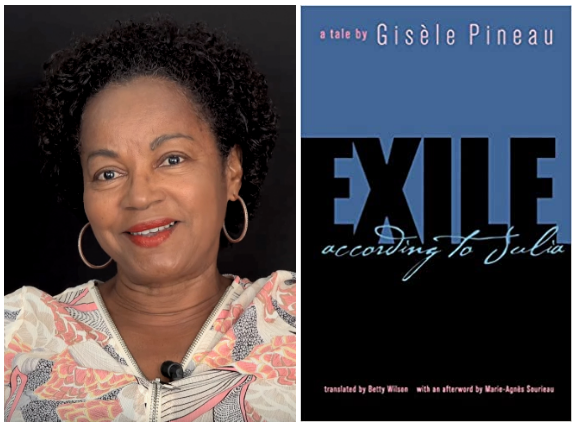Over the course of the last century French female writers have succeeded in forging a solid place for themselves in ranks of modern French literature, often by being innovative, expressing a female perspective or constructing new narrative forms. Their engaging works should be celebrated every day, however, in honour of International Women’s Day on 8 March, we are highlighting a selection of French women writers chosen by Dr Carine Fréville, a professor of French and literature at the Paris School of Arts and Culture. Fear not if your French language skills aren’t up to snuff, all of these authors have at least one book translated into English.
Violette Leduc
The subject of Dr Fréville’s Master’s thesis, novelist Violette Leduc was born in the northern French city of Arras in 1907, the illegitimate daughter of a servant and the son of a rich bourgeois family. She attended a boarding school from the age of 11, where she was introduced to literature and where she also had her first lesbian experience, an affair which would later inspire her 1955 novel Ravages. After failing her baccalaureate exam in 1926, she got a job as a press cuttings clerk and secretary at the Pion publishing house; a role that transitioned into her writing news pieces about their publications. She wrote her first novel, L’Asphyxie, in 1946 (translated into English in 1970 as In the Prison of Her Skin). Prior to its publication, she met and gave a manuscript of the book to Simone de Beauvoir, the beginning of their lifetime friendship. Leduc is best-known for her 1964 autobiographical novel La Bâtarde (The Bastard), a bestseller in France and shortlisted for le Prix Goncourt, one of the country’s most prestigious literary prize. Leduc was also the subject of the 2013 film Violette directed by Martin Provost.
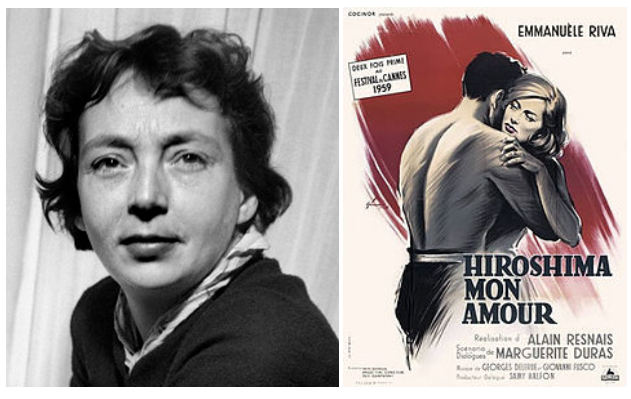
Photo (left): Marguerite Duras, Chateau de Duras
Marguerite Duras
The author of dozens of novels, plays and screenplays, Marguerite Duras is one of France’s most international recognized female writers. Born in 1914 in French Indochine (now Vietnam) to teacher parents, she came to France to complete her studies at age 17. Obtaining a degree in Political Science, she originally pursued a career in the French civil service. Nevertheless, she was writing on the side and published her first novel, Les Impudents, in 1943 – coincidentally with Pion, the same publisher where Leduc worked. Thanks to her third novel, Un barrage contre le Pacifique (The See Wall, published in 1950 and adapted to cinema in 2007 by director Rithy Panh), Duras’s writing began to garner more attention and she began to establish herself as a prominent pillar of modern French literature. Among her other works are the best-selling, autobiographical novel L’Amant which won the Prix Goncourt in 1984 (also adapted to film in 1992 by Claude Berri) and her screenplay for the 1959 New Wave film Hiroshima mon Amour, directed by Alain Resnais, which was nominated for Best Original Screenplay at the Academy Awards.
Annie Ernaux
Winner of the Nobel Prize for Literature in 2022, Annie Ernaux is one of France’s most renowned modern writers. Born into a working-class family in Normandy in 1940, she pursued a degree in literature and began a career in teaching. In 1974 she published her first novel, Les Armoires Vides (Cleaned Out), inspired by her childhood in Normandy and exploring the condition of her parents’ generation, women’s issues and the struggle between social classes – themes which frequently come up in her writing. She became better know abroad after her 2008 memoir, Les Années, was translated into English and subsequently long-listed for the Man Booker international prize. She has earned many other national and international distinctions including having her complete body of work awarded the Marguerite Yourcenar prize in 2017.
Gisèle Pineau
Born in Paris in 1956, Gisele Pineau’s family roots in Guadeloupe and the struggles of French people of colour are important themes in her writing. In 1975 she began studying literature, which she gave up to pursue a career as a psychiatric nurse. In 1993 she published her first novel, La Grande Drive des Esprits, which shed light on the difficulties, suffering and violence women endure in the French West Indies. The book was awarded Elle France’s Reader’s Choice Award and the Carbet de la Caraïbe prize, making her its first female laureate. She has since written over 20 novels including the critically-acclaimed autobiographical novel, L’Exil selon Julia (Exile According to Julia, 1996), which is studied in Dr Fréville’s Diaspora and Exile class.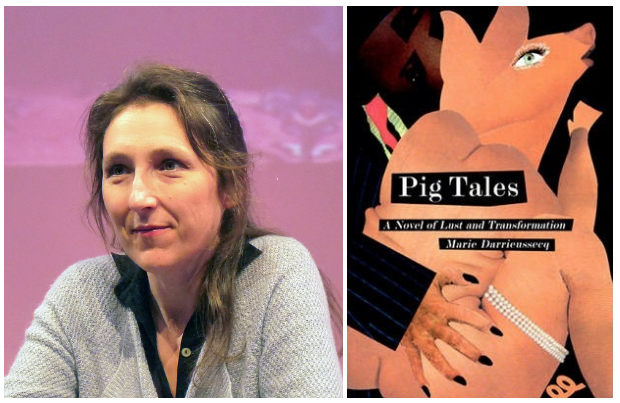
Marie Darrieussecq
One of the authors covered in Dr Fréville’s PhD, Marie Darrieussecq’s work often revolves around gender issues, the body and transformation as seen through the eyes of female characters. Born in 1969, Darrieussecq studied modern literature at the Sorbonne Nouvelle and obtained her PhD from the Université Paris VII. She became an instant success at 27 with the publication of her first book and international best-seller, Truismes (Pig Tales), which describes the metamorphosis of a woman into a sow. Her 2013 novel Il Faut beaucoup Aimer les Hommes (A Novel of Cinema and Desire) was taken from a sentence from Marguerite Duras’s La Vie Matérielle: “We have to love men a lot”, and won her the Prix Médicis and the Prix des Prix. In 2017 we had the pleasure of welcoming the author at our Paris campus as the guest of a conference hosted by Dr Fréville.
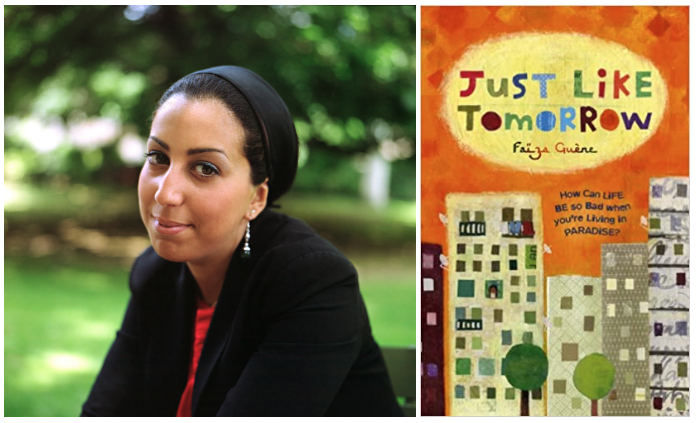
Photo: Faïza Guène, Hachette
Faïza Guène
One of France’s rising literary stars, Faïza Guène’s published her debut novel, Kiffe Kiffe Demain (Just Like Tomorrow) in 2004 when she was only 19. Selling over 400,000 copies and translated into 26 languages, the book portrays the realities of the life of a teen of immigrant parents growing up in the Parisian suburbs, it is also covered in Dr Fréville’s Diaspora and Exile class. She has since published four other novels, which further explore issues of identity and contemporary French society. She has also written and directed several short films and writes for or appears regularly in French press, radio and TV.
